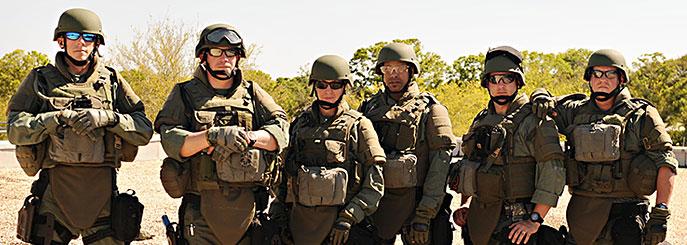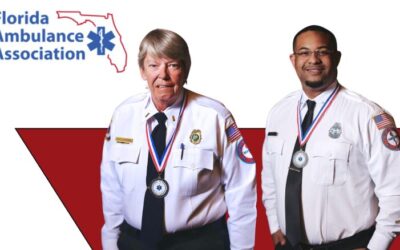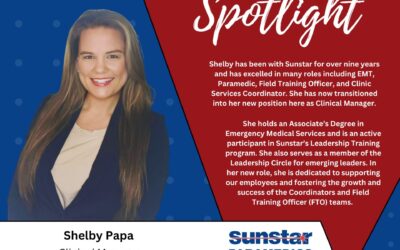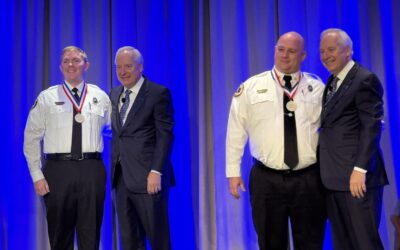Life as a special weapons and tactic (SWAT) medic is a study in extremes. On some calls, medics may be staged in an ambulance, armored vehicle or in strategic locations surrounding the perimeter of a building often for hours at a time. But when it’s time to act, medics must respond quickly to provide emergency medical care in fast-moving, high-pressure, and often dangerous situations.
“You can be sitting there doing nothing, and the next thing you know, you’re in a full blown car chase,” says Chris Eisenhardt, SWAT medic and team leader at Sunstar.
The job requires physical and emotional toughness, and not everyone can do it. Despite the stress involved, 10-year veteran Eisenhardt and new SWAT team member Joe Herzhauser say that saving lives and keeping the community safe is more than worth the effort. Their proudest moments occur, “Anytime we get to help somebody,” Eisenhardt explains.
Sunstar currently employs a team of 11 SWAT medics who receive specialized tactical training alongside deputies from the Pinellas County Sheriff’s Office to respond to specific types of law enforcement situations. Team members assist officers in executing high-risk search warrants, dealing with barricaded subjects, rescuing hostages, protecting dignitaries, and more.
High risk search warrant calls can require hours of planning. Eisenhardt explains that law enforcement often calls the team to request their assistance on these operations, which always involves careful planning and preparation by rehearsing the call ahead of time.
Other calls are spur of the moment such as hostage situations or barricaded subjects, for example. In these cases, the team typically receives a call to respond immediately. Such situations are often volatile and occasionally end in the short time it takes for the SWAT team to arrive with the rest of the SWAT team. Other times, the medics who respond can log intense shifts sometimes lasting 12 hours more as these unpredictable situations unfold.
To become a SWAT medic, candidates with at least one year of paramedic experience must successfully complete a vigorous tryout. Candidates are expected to swim 100 yards and tread water for 5 minutes; run a mile; drag a 225-pound dummy 15 yards; don a 36-pound backpack and traverse a 4-story tower where they are charged with handling a mock basic trauma scenario at the top; and then quickly return downstairs, remove the pack, and run an obstacle course. Candidates then must complete a written test and pass a background check and polygraph administered by the Sheriff’s Office. If a candidate successfully passes all of these tests, he or she begins the truly difficult part of the job: training.
During SWAT training, medics and law enforcement officers learn techniques for arriving at a dangerous scene; breaching a barricaded house or apartment; responding to shootings; moving patients; and helping injury victims. Sunstar’s SWAT team members also receive extensive training in tactical combat casualty care, or TCCC, a form of emergency care performed in high-risk situations similar to that practiced by military field medics.
Sunstar Director of Operations Richard Schomp says that it’s difficult to articulate just how intense the training is. “When I say training, I mean up, down, over berms, crawling, getting dirty, dragging things, and trying to still perform at the absolute highest level to provide the best quality medical care, and then when the real thing happens, it’s an amazing feat.”
Sunstar’s SWAT medics train hard and work hard to keep the community safe, but they’re modest about their accomplishments. “Too modest,” says Schomp. “You have to work really, really hard to get on the team, and then you have to work harder to stay on the team,” he explains, adding that training as a SWAT medic “makes you a better paramedic because you have a more keen awareness of what’s going on around you all day long, taking care of your partner, and yourself, and your patients.”
“The medics make a lot of sacrifices to do what they do,” says Schomp, and, “They do a wonderful job.”



